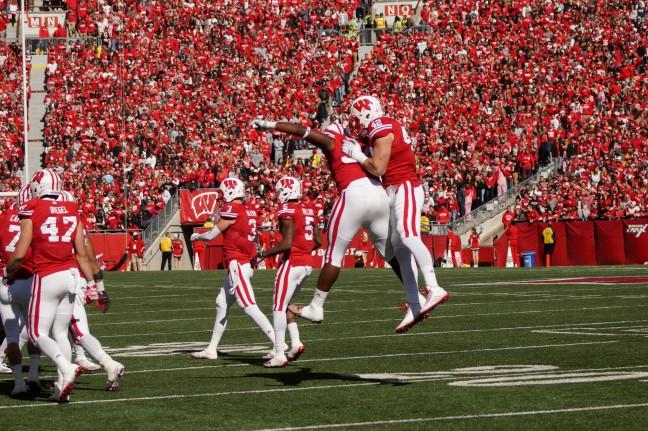According to a report released Wednesday, the U.S. Department of Defense spent $6.8 million on sports marketing contracts since 2012.
The taxpayer money went toward displays of patriotism, including color guards, anthems and salutes during sporting events across the country. Wisconsin teams, Packers, Brewers and Badgers, all held contracts with the DOD.
U.S. Sen. John McCain, R-Arizona, and U.S. Sen. Jeff Flake, R-Arizona, published the report and said it is proof of effective oversight on the part of the U.S. Senate.
“It is time to allow major sports teams’ legitimate tributes to our soldiers to shine with national pride rather than being cast under the pallor of marketing gimmicks paid for by American taxpayers,” the report said.
In a 2014 contract, the Badgers received $170,000 of taxpayer money for patriotic displays at football and hockey games.
During the fall, DOD funded the football game day pregame or halftime ceremony, patriotic signs, game ball presentation, announcements, radio broadcast attention, five parking passes and 50 vendor passes, according to the report.
The report also found that during hockey game day, taxpayer money went toward pregame hockey stick presentation, halftime contest opportunity, patriotic signage, electronic message board announcements, radio broadcast acknowledgement, promotional fan items, 25 vendor passes, five parking passes and printing the Wisconsin Army National Guard logo on programs.
Finally, DOD sponsored the Badgers’ football spring game through placing the WIARNG logo on promotional advertising, an opportunity to give promotional items to fans, a game ball presentation, halftime contest with a WIARNG grand prize and WIARNG display.
The Green Bay Packers received $150,000 of taxpayer money in 2012 and an additional $50,000 in 2014, amounting to $200,000 worth of DOD-funded patriotic events in the past three years. The Brewers received $80,000 in 2014 from the DOD.
McCain and Flake said in the report the only way to prevent this unfortunate use of taxpayer money is through continued oversight.
“Direct and persistent sunlight is the best way to ensure that such activities are not continued,” the report said.














